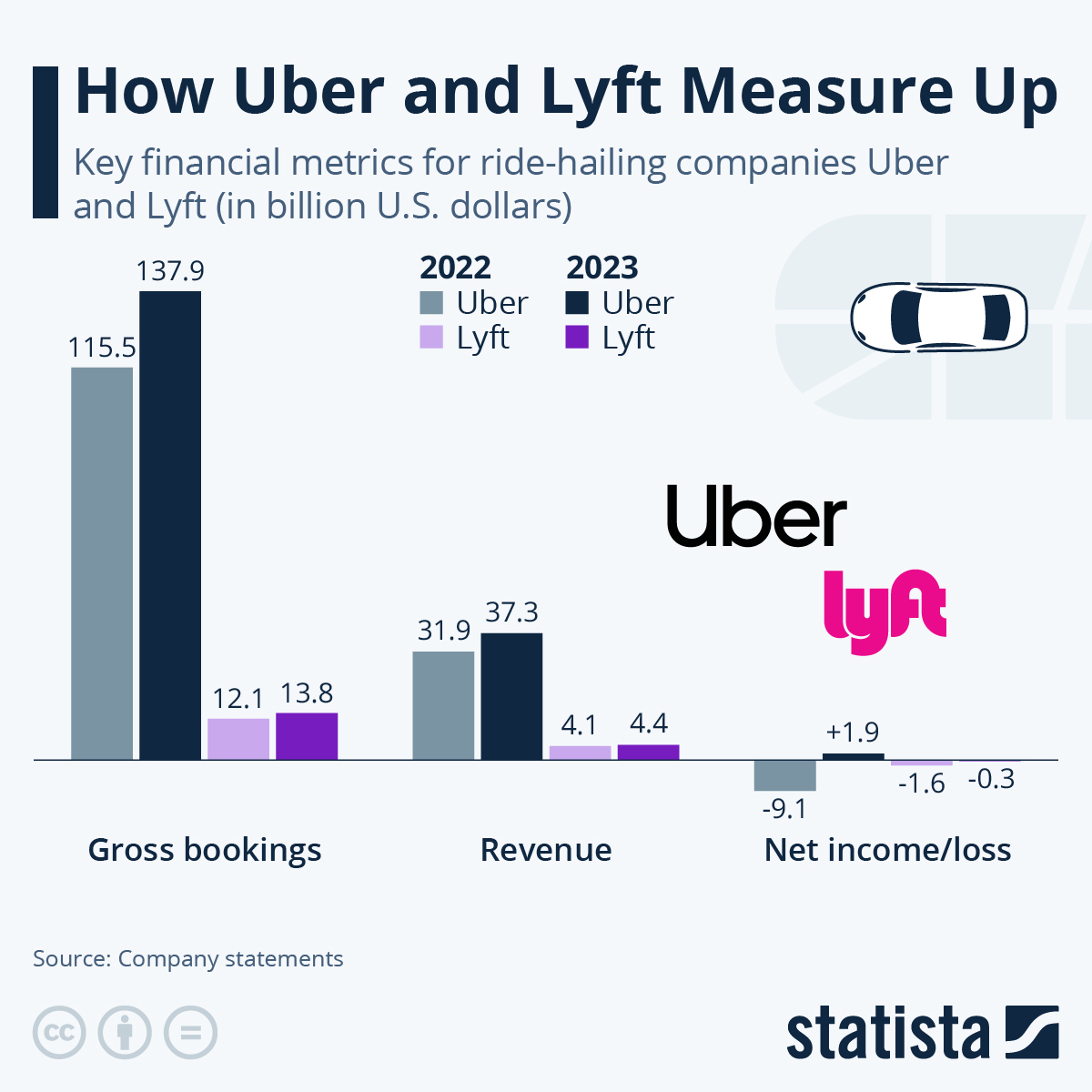Even though there are many smaller players in the mobility service market in the U.S., ride-hailing is dominated by Lyft and Uber. As the former's most recent financial results for the first quarter of 2024 show, it still considerably lags behind the latter.
For example, Uber's revenue stood at $10.1 billion against gross bookings of $37.7 billion between January and March 2024, up 20 and 15 percent, respectively, year over year. Lyft, on the other hand, generated $1.3 billion out of $3.7 billion in gross bookings. Uber's dominance in the United States and improvements regarding revenue and bookings compared to the first quarter of 2023 didn't translate to a good performance at the stock exchange though. Amid tepid forecasts for the second quarter of 2024 and an unexpected net loss due to the revaluation of Uber's equity investments, the mobility company's stock dropped by six percent in after-market trading. Its main rival Lyft instead forecasted a strong performance between April and June and was rewarded with a stock price jump of around five percent at today's market open.
Also important to note: While Lyft makes its money with ride-hailing and shared mobility and its only significant market is the U.S., Uber is active worldwide and has expanded its scope of operations over the past years. Its mobility segment generated 50 percent of the total gross bookings and 56 percent of the total revenue between January and March 2024, with freight and delivery making up the rest.
Even though both companies improved their financials and have stayed that course for the first months of 2024, the companies' drivers are less than thrilled with the state of things. As Reuters reported on February 12, thousands of ride-sharing and delivery drivers employed by Uber, Lyft, DoorDash and others went on strike this past Valentine's Day. "This is the biggest strike I've ever seen, thousands and thousands of drivers ... it's going to be nationwide," Miami driver Jonathan Cruz told Reuters. The last coordinated strike effort on a national level organized by the Justice for App Workers Coalition took place on May Day in selected U.S. cities like New York, Chicago, Philadelphia, Miami and Las Vegas.





















